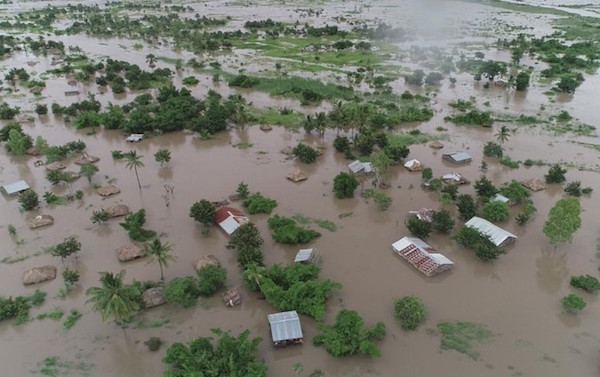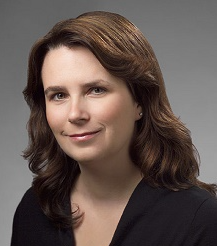Mozambique
See the following -
Africa Innovations: 15 Ideas Helping To Transform A Continent
A mobile phone database for dairy farmers and a strain of sweet potato that can help fight child blindness. These are just two of the imaginative new ideas that are tackling Africa's old problems Read More »
- Login to post comments
Africa's Mineral Wealth Hardly Denting Poverty Levels, Says World Bank
Report finds discovery of oil and mineral resources doing little to improve prospects for poor people, whose lot may even worsen Read More »
- Login to post comments
Apps: The Afro Revolution
Five mobile apps that are putting key information into the hands of ordinary Africans Read More »
- Login to post comments
Condom Airborne Meds: 6 Ways Drones Could Change Health Care
 Drones have been used to deliver sunscreen to a conference in Palm Springs, Calif., and pizza to a family in New Zealand, but they’re also in the air for far more urgent purposes — such as saving lives. In fact, in some cases, drones could carry defibrillators to heart attack victims faster than an ambulance, according to a paper published Tuesday in the Journal of the American Medical Association. Researchers simulated emergency situations and found they could get automatic external defibrillators to the scene an average of 16 minutes faster by drone than by ambulance...
Drones have been used to deliver sunscreen to a conference in Palm Springs, Calif., and pizza to a family in New Zealand, but they’re also in the air for far more urgent purposes — such as saving lives. In fact, in some cases, drones could carry defibrillators to heart attack victims faster than an ambulance, according to a paper published Tuesday in the Journal of the American Medical Association. Researchers simulated emergency situations and found they could get automatic external defibrillators to the scene an average of 16 minutes faster by drone than by ambulance...
- Login to post comments
Developing Nations Improving Health Communication Through the Use of DHIS2 (Part 1)
 DHIS2 implementations are spreading steadily among national health services in developing countries as well as among international non-governmental organizations (NGOs) working to improving health in the developing world through the use of health information technology. As an open source solution, DHIS2 offers developing countries the advantage of adopting a cost-effective and flexible solution for aggregate statistical data collection, validation, analysis, management, and presentation as well as for data sharing between healthcare professionals and facilities. Organizations and individuals who work with humanitarian software solutions will need to know what DHIS2 is, how it works, and how it might be implemented by national health services and other health-related projects across the globe...
DHIS2 implementations are spreading steadily among national health services in developing countries as well as among international non-governmental organizations (NGOs) working to improving health in the developing world through the use of health information technology. As an open source solution, DHIS2 offers developing countries the advantage of adopting a cost-effective and flexible solution for aggregate statistical data collection, validation, analysis, management, and presentation as well as for data sharing between healthcare professionals and facilities. Organizations and individuals who work with humanitarian software solutions will need to know what DHIS2 is, how it works, and how it might be implemented by national health services and other health-related projects across the globe...
- Login to post comments
How Can Information and Communications Tech Help in Disaster Preparedness and Response?
 n the immediate aftermath of disasters, timely and effective information is critical for the decision-making process. Information and Communication Technologies (ICTs) play a significant role in mitigation, preparedness, response, and rehabilitation by facilitating the flow of vital information in a timely manner. To deliver and deploy telecommunications / information and communication resources (transportable, easy to deploy and reliable systems that are non-exclusive) in a timely manner in the event of disasters, the ITU has designed the ITU Framework for Cooperation in Emergencies (IFCE). Innovative technologies such as robotics, drone technology, GIS, and emerging technologies like artificial intelligence (AI), the Internet of Things (IoT), cloud computing and Big Data are transforming the complex process of disaster management.
n the immediate aftermath of disasters, timely and effective information is critical for the decision-making process. Information and Communication Technologies (ICTs) play a significant role in mitigation, preparedness, response, and rehabilitation by facilitating the flow of vital information in a timely manner. To deliver and deploy telecommunications / information and communication resources (transportable, easy to deploy and reliable systems that are non-exclusive) in a timely manner in the event of disasters, the ITU has designed the ITU Framework for Cooperation in Emergencies (IFCE). Innovative technologies such as robotics, drone technology, GIS, and emerging technologies like artificial intelligence (AI), the Internet of Things (IoT), cloud computing and Big Data are transforming the complex process of disaster management.
- Login to post comments
Open Medical Records Community Supports New System In Mozambique
 The southern African country of Mozambique suffers under the most extreme challenges for resource-poor countries: economic instability, political strife, civil unrest, corruption and crime, unreliable infrastructure (such as transportation and telecommunications), and a large-scale HIV epidemic that has yet to be declared under control...The nation has enormous need and opportunity for improving its healthcare system and the lives of its residents. In the face of their crisis, Mozambique is working to equip its medical clinics across the nation with an electronic medical records system (EMR). Mozambique believes an EMR can empower clinicians to give high-quality and consistent care to those most in need, while allowing the country to reap the insights of comprehensive reporting for responsive public health decision making...
The southern African country of Mozambique suffers under the most extreme challenges for resource-poor countries: economic instability, political strife, civil unrest, corruption and crime, unreliable infrastructure (such as transportation and telecommunications), and a large-scale HIV epidemic that has yet to be declared under control...The nation has enormous need and opportunity for improving its healthcare system and the lives of its residents. In the face of their crisis, Mozambique is working to equip its medical clinics across the nation with an electronic medical records system (EMR). Mozambique believes an EMR can empower clinicians to give high-quality and consistent care to those most in need, while allowing the country to reap the insights of comprehensive reporting for responsive public health decision making...
- Login to post comments
University Of California Researchers To Fund Citizen-Sensor Project For Revolutionizing Global Health
Enterprising researchers and students at the University of California, San Diego are looking for funding to complete a “citizen-sensor” project that, they hope, will revolutionize global health and environmental monitoring — especially in remote and undeveloped areas of the planet. Read More »
- Login to post comments
Why African Countries Need to Invest in Research and Citizen Science
 Climate change, HIV/AIDS, recurring droughts, and food insecurity are some of the most pressing issues the African continent has had to deal with in 2016. These issues pose a significant threat to economic, social and environmental development in Africa and create health and economic challenges to the continent. Yet, all of these challenges can benefit from research results spinning off from African universities and research institutions. But to get these results, the institutions must have the funds...
Climate change, HIV/AIDS, recurring droughts, and food insecurity are some of the most pressing issues the African continent has had to deal with in 2016. These issues pose a significant threat to economic, social and environmental development in Africa and create health and economic challenges to the continent. Yet, all of these challenges can benefit from research results spinning off from African universities and research institutions. But to get these results, the institutions must have the funds...
- Login to post comments
“Write Code! Save Lives!” OpenMRS Meet in Malawi Shows the Way
 More recently, I attended the 12th annual International OpenMRS Implementers’ Conference in the capital city of Malawi, Lilongwe, from Dec. 12 to 16, 2017. At this annual event, volunteers, developers and implementers came together to talk about all things OpenMRS and develop strategies for the evolution and applications of the software....Meeting this determined and committed community has boosted my drive and sense of purpose for writing code. I feel like this is the kind of project that I can contribute code to for many years to come. At the conference, I was reminded of a common Global Health Corps saying: “Once a fellow, always a fellow!”
More recently, I attended the 12th annual International OpenMRS Implementers’ Conference in the capital city of Malawi, Lilongwe, from Dec. 12 to 16, 2017. At this annual event, volunteers, developers and implementers came together to talk about all things OpenMRS and develop strategies for the evolution and applications of the software....Meeting this determined and committed community has boosted my drive and sense of purpose for writing code. I feel like this is the kind of project that I can contribute code to for many years to come. At the conference, I was reminded of a common Global Health Corps saying: “Once a fellow, always a fellow!”
- Login to post comments